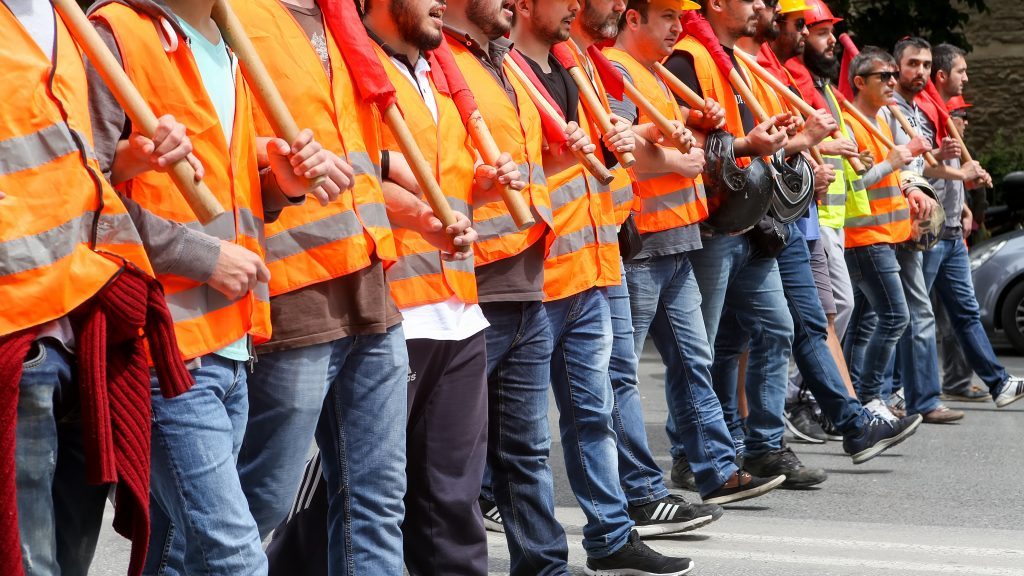The Residential Construction Council of Ontario (RESCON) is calling on the province to pilot a program that would allow builders to bring in more immigrant workers to help offset the shortage of skilled trades.
Richard Lyall, president of the organization, says he’d like to see government create a program tailor-made for the residential construction sector, like one being proposed for the manufacturing sector.
“This is something that needs to be considered,” he said in an interview. “There are some existing programs here, but we really need something for construction.
“If we bring over a master mason or master tile setter or somebody who’s an expert in concrete forming we can put them to work right away. There is an element of immediate beneficial impact on the economy.”
The government is proposing a regulation that would amend the Ontario Immigrant Nominee Program (OINP) and add 13 additional manufacturing-related National Occupational Classification (NOC) codes to the list of specific in-demand employment positions located outside of the Greater Toronto Area (GTA).
Essentially, the amendments would lessen the administrative burden for companies in Ontario that are hiring immigrants for manufacturing-related positions outside of the GTA and in rural parts of the province.
RESCON views the amendments as a major step in the right direction and is optimistic a similar pilot can be created to deal with employer recruitment and retention issues in residential construction because, in the past, immigrants have contributed to the industry and brought innovations with them.
If we’re going to try to increase the amount of housing…we’re going to need additional people here,
— Richard Lyall
Residential Construction Council of Ontario
Lyall recently sent a letter on the matter to the Ministry of Economic Development, Job Creation and Trade.
He said the government’s mandate of investing in infrastructure and building more housing is contingent upon having a sustainable workforce to do so, and while government has made great strides in addressing the skilled trades shortage, the residential construction industry, in particular, is currently facing labour shortages in many voluntary trades that will only worsen as workers retire in coming years.
According to data from BuildForce Canada, the construction industry in the GTA alone will have to recruit an additional 20,000 workers within the next decade to offset retirements, he noted, while province-wide there will be a need to recruit 100,000 new construction workers over the next 10 years.
In certain trades, like elevator technicians and crane operators, the system is strained and there would be a manpower shortage if government speeded up approval of major infrastructure projects, said Lyall.
“We wouldn’t be able to rise to the occasion unless we bring in some skilled trades. We’re kind of maxed out right now.”
The demographics are known, the population of the province is growing and there’s a need to build more housing in the GTA, said Lyall, but that poses a problem because there is no surplus of labour to do it.
“If we’re going to try to increase the amount of housing we’re producing, which I would say is imperative to avoid some pretty dire socio-economic situations, then we’re going to need additional people here.”
Lyall said he would like to see a customized approach to enabling more immigrants to work in the construction industry because there are distinct sectors: industrial, commercial and institutional; sewer and watermain; roads and heavy engineering; pipelines; electrical power systems; and residential.
Meanwhile, the distinction between voluntary and compulsory trades further differentiates the trades and would have to be addressed, he said, and the fact that journeypersons often move from job to job.
Lyall also said that while the NOC codes are a good start, they do not offer a complete picture or take sectoral differences into account and should not be the only source of information considered when addressing skilled immigration recruitment to Ontario’s construction industry.
“There’s going to be some sectors that say, ‘Hey, we’re fine,’ and others that say, ‘No, we’re not fine.’ There’s a judgment element there, so we probably have to come up with some kind of way to evaluate the relative merits and demerits related to specific trades and what the numbers might be and so on.”
Lyall would like to see a committee of experts be established from management, labour and immigration to come up with solutions and identify what types of workers and skills are needed over the long-term.
He is advocating for a program to be set up that permits foreign workers to apply from their home countries and include an interview, security and background-check process.
“If they apply to come to Canada under a skilled trades program and they work here for a few years, like other immigration programs, they could apply for landed immigrant status. We accord that privilege to foreign students who come here to go to our technical colleges. They finish the program and they’re working and they can apply for landed immigrant status. We need the skilled trades as much as we need those people.”
As part of addressing the skills shortage in Ontario, RESCON is also proposing that a greater focus be placed on the Red Seal Program and improving mobility of the skilled trades from province to province.
“There really needs to be a harmonization across the country on those standards. It’s kind of silly that we can’t get our act together on that.”











The concept has value, what is bothersome is perhaps allowing a replacement workforce to enter Canada that has limited knowledge of our safety, building codes and quality standards along with the stringent education and adherence to the Apprenticeship Legislation Acts that no one should bend and weaken. Ontario has one of the best standards for harvesting skilled trades workers, we stand in union and think very little of working beside unskilled workers on any jobsite, be it small or massive, a jobsite can be a dangerous environment on a good day, we can’t afford any causality’s that affect us.
gentlemen, I am a construction worker, and I have experience in hydraulics, electrical, laying aluminized blankets and more, I am in good health and can contribute to the construction of buildings in Canada.
Better known as wage suppression of existing Canadian workers.